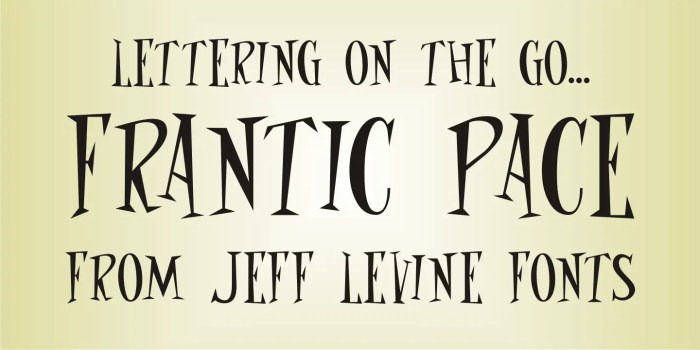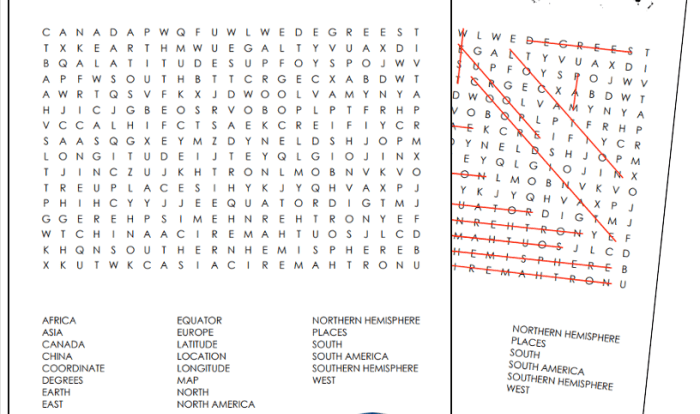At a frantic pace crossword – Embark on a thrilling expedition into the world of crosswords, where time is of the essence and every clue demands a swift response. At a Frantic Pace: Deciphering Crossword Puzzles with Speed and Wit unveils the secrets of solving crossword puzzles with alacrity and finesse.
Prepare to unravel the intricacies of cryptic clues, explore the art of wordplay and puns, and delve into the strategies employed by seasoned solvers to conquer time-sensitive challenges. Brace yourself for an exhilarating journey through the realm of crossword puzzles, where every second counts.
Crossword Puzzle Clues: At A Frantic Pace Crossword

Crossword puzzles are a popular and challenging word game that has been enjoyed by people of all ages for centuries. The goal of a crossword puzzle is to fill in a grid with words that fit the clues given. Clues can be simple or cryptic, and they can range from easy to difficult.
Cryptic clues are especially challenging because they often require a fast or hurried response. These clues can be frustrating at first, but they can also be very rewarding when you finally solve them.
Types of Cryptic Clues
- Homophones:Clues that use words that sound the same but have different meanings.
- Anagrams:Clues that use words that are made up of the same letters in a different order.
- Puns:Clues that use wordplay to create a humorous or clever answer.
- Double definitions:Clues that provide two definitions for the same word.
- Charades:Clues that describe an action or object using a series of words.
Tips for Solving Cryptic Clues, At a frantic pace crossword
- Read the clue carefully:Make sure you understand what the clue is asking you to do.
- Look for hidden meanings:Cryptic clues often use wordplay to create a hidden meaning.
- Don’t be afraid to guess:Sometimes, the best way to solve a cryptic clue is to guess and then check your answer.
- Use a dictionary:If you’re stuck, don’t be afraid to use a dictionary to look up the meaning of words.
- Have fun:Solving cryptic clues should be enjoyable, so don’t get discouraged if you can’t solve them all.
Wordplay and Puns

Wordplay and puns are clever uses of language that can add a sense of humor or challenge to crossword clues. By using homonyms, double entendres, and other wordplay techniques, clue writers can create puzzles that require solvers to think outside the box and come up with creative answers.
For example, the clue “What do you call a fish with no eyes?” might have the answer “fsh.” This clue relies on the fact that the word “fish” sounds the same as the letter “f” followed by the letter “sh.”
Trying to solve the “at a frantic pace” crossword clue? If you’re stuck, consider researching si joint x ray oblique . This might provide insights that help you fill in the missing letters and complete the crossword puzzle.
Another example is the clue “What do you call a boomerang that won’t come back?” The answer is “a stick.”
Use of Wordplay and Puns in Crossword Clues
Wordplay and puns can be used in crossword clues in a variety of ways. Some common techniques include:
- Homonyms:Words that sound the same but have different meanings, such as “bat” (animal) and “bat” (sports equipment).
- Double entendres:Phrases that have two possible meanings, one of which is usually humorous or suggestive.
- Anagrams:Words that are formed by rearranging the letters of another word, such as “cat” and “act.”
- Puns:Jokes that rely on the multiple meanings of words or the unexpected use of words.
By using these and other wordplay techniques, clue writers can create puzzles that are both challenging and entertaining.
Time Constraints and Pressure

Time constraints play a crucial role in crossword puzzles, particularly for competitive solvers. The pressure to complete a puzzle within a specified time limit can significantly impact the solver’s approach and strategy.
Tournament and Time Limits
Competitive crossword tournaments often impose strict time limits, ranging from a few minutes to several hours. These time constraints test the solver’s speed, accuracy, and ability to think under pressure. In such tournaments, solvers must prioritize efficiency and allocate their time wisely to maximize their chances of completing the puzzle successfully.
Thematic Crosswords

Thematic crosswords introduce a captivating twist to the traditional crossword puzzle experience. In these puzzles, the clues are intricately woven around a specific topic or theme, adding an extra layer of challenge and intrigue to the solving process.
The theme of a crossword can significantly influence its pace and difficulty. For instance, a crossword themed around “Fast Cars” might incorporate clues that require solvers to think quickly and recall information about high-speed vehicles. This can create a sense of urgency and add to the overall excitement of solving the puzzle.
Examples of Thematic Crosswords
- Pop Culture Craze:A crossword themed around popular movies, TV shows, or music can test solvers’ knowledge of entertainment trivia and require them to work at a fast pace to keep up with the rapid-fire clues.
- Historical Happenings:A crossword focusing on historical events or figures demands a deep understanding of the past and can encourage solvers to think critically and piece together information quickly.
- Scientific Discoveries:A crossword centered on scientific breakthroughs or inventions challenges solvers to recall complex concepts and apply their knowledge under time constraints.
Solver Techniques and Strategies

Solving crossword puzzles at a frantic pace requires a combination of skill, strategy, and efficient techniques. Experienced solvers employ various tactics to decode clues quickly and accurately, enabling them to complete grids within tight time constraints.
One common strategy is to identify and target short, easy-to-solve clues first. This builds momentum and provides a foundation for tackling more challenging clues later on. Solvers may also focus on clues that offer multiple potential answers, as these often provide more opportunities for educated guesses.
Guessing Techniques
- Wild Guesses:Making educated guesses based on the length of the answer and any available crossing letters.
- Partial Guesses:Filling in a few letters based on the clue and crossing letters, then using word lists or anagram solvers to find possible matches.
- Letter Swapping:Substituting one or more letters in a potential answer to create a new word that fits the clue.
Pattern Recognition
- Recognizing Patterns:Identifying recurring letter combinations, prefixes, or suffixes that may indicate specific words or phrases.
- Thematic Clues:Clues that relate to a specific theme or category, which can provide context for solving related clues.
Deductive Reasoning
- Elimination:Ruling out incorrect answers based on the letters already filled in or the logical constraints of the clue.
- Backsolving:Working backward from known letters to deduce the missing ones.
Online Crossword Communities and Resources

Online crossword communities and resources play a vital role in fostering support and collaboration among crossword enthusiasts. These platforms provide a space for solvers to connect, share ideas, and collaborate on solving challenges together.
One of the primary benefits of online crossword communities is the ability to access a vast pool of knowledge and expertise. Seasoned solvers can offer guidance and assistance to beginners, while experienced solvers can engage in discussions about complex clues and strategies.
Example Websites
- Crossword Fiend: A popular online forum dedicated to crossword solving, with a vibrant community of solvers who engage in discussions, share tips, and collaborate on solving challenges.
- Wordplay Central: An online resource that offers a wide range of crossword-related content, including forums, articles, and interactive puzzles.
- Daily Crossword Club: A website that hosts daily timed crossword challenges and provides a platform for solvers to compete against each other.
Answers to Common Questions
What is the key to solving crossword puzzles quickly?
Practice, familiarity with common crossword conventions, and a knack for wordplay are essential.
How do time constraints affect crossword solving?
Time pressure can add an element of excitement and challenge, forcing solvers to think on their feet and prioritize clues.
What role do online crossword communities play?
Online forums and websites offer a platform for collaboration, idea sharing, and timed crossword challenges.
